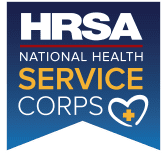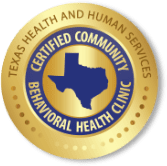You may be dealing with
Bullying/Cyberbullying
Bullying among children and teens is a growing epidemic and is characterized by unwanted aggressive behavior by another person or group of people. It can be physical, social and/or verbal. Bullying also includes cyberbullying, a type of aggression that is carried out through text message or online – emails social media or forums. The major differences between cyberbullying and bullying are that cyberbullying can be anonymous, persistent, and permanent. Anyone can be bullied – people of all ages, and it can occur anywhere – at home, school or even work, at anytime.
Children or adolescents who are bullied are more likely to experience depression, anxiety and low self-esteem. Additionally, they might complain of headaches or stomachaches, have lower grades in school and miss or drop out of school. Children who bully others have a higher risk for substance use, problems in school, and violence later in life.


What Are The Signs of Being Bullied?
Often, kids who are being bullied don’t report it for a multitude of reasons including backlash from the bully or feeling too ashamed to talk about it. Bullying is a serious problem that can have severe consequences. Here’s what to look for if you think a loved one is being bullied:
- Depression or anxiety
- Low self-esteem
- Bodily aches and pains
- Not wanting to go to school or getting lower grades than before
- Self-destructive behaviors: running away, harm to self or suicidal ideation
- Trouble sleeping or frequent nightmares
- Sudden loss of friends or avoidance of social situations
How Do You Help Someone Who is Being Bullied?
The Department of Health and Human Services offers the following guidelines to help a child who is being bullied:
- Listen and focus on the child. Learn what’s been going on and show you want to help.
- Assure the child that bullying is not his/her fault
- Know that kids who are bullied may struggle with talking about it. Consider referring them to a school counselor, psychologist, or other mental health service.
- Give advice about what to do. This may involve role-playing and thinking through how the child might react if the bullying occurs again.
- Work together to resolve the situation and protect the bullied child. The child, parents, and school or organization should be part of the solution.
- Follow up. Bullying may not end overnight. Make sure that the child knows that you are committed to making it stop.
Mental health and wellness is essential for a child to live an independent, productive life full of positive experiences. Through mental health treatment and outpatient programs, The Center for Health Care Services helps children get on-track with peers, achieve academic success and live a positive, meaningful life as a well-functioning adult. If you or a loved one is experiencing a mental health condition like depression or anxiety because of bullying, YOU ARE NOT ALONE!
Outpatient Mental Health Services for Children and Adolescents
Being mentally healthy in childhood means reaching developmental and emotional milestones, learning healthy social skills, and how to cope when problems arise. When there is a concern that a child might not be meeting these milestones, The Center offers an array of services that can help.
Being mentally healthy in childhood means reaching developmental and emotional milestones, learning healthy social skills, and how to cope when problems arise. When there is a concern that a child might not be meeting these milestones, The Center offers an array of services that can help.
Our goal is to strengthen and support families by providing services for an array of issues, including:
- Sadness or depression
- Fear or anxiety
- Persistent nightmares
- Low self-esteem
- Social isolation
- Harming self or others
- Behavioral problems
- Academic problems
- Running away and truancy
- School bullying
- Parenting support
- Child abuse/assault
- Divorce
- Grief/loss
- History of trauma
Children’s mental health treatment is for Bexar County youth ages 3 – 17 with a DSM-V Diagnosis, and includes the following services:
- assessment
- skills training
- counseling
- case management
- medication training and support
- psychiatric evaluation and medication monitoring
- training
- family partner support
How to Enroll in Children’s Behavioral Health Services
To enroll a child in services, start by calling (210) 261-CHCS (2427) to begin the registration process. The enrollment screening process is done Monday through Friday from 8 a.m. to 3 p.m. at the Children’s Behavioral Health Clinic at Bandera: 6812 Bandera Road, Suite 102, San Antonio, Texas 78238.
In the event of a mental health crisis including suicidal or homicidal thoughts, please call the 24-Hour Crisis & Substance Use Helpline at 800-316-9241 or 210-223-SAFE (7233). Please call 911 if harm to self or harm to others is imminent.
The Center helps children and adolescents find hope, determine their path to wellness, and discover their way to an independent, productive life.
For more information, or to enroll in services, please call:
Children: (210) 261-CHCS (2427)
Good Health and Wellbeing: Children 101
Mental health and wellness is essential for a child to live an independent, productive life full of positive experiences. Because a child’s development begins with the love and encouragement they receive from parents and caregivers, it’s important to:
- Establish healthy habits: nutritious food, adequate sleep, and exercise
- Provide a safe and secure home
- Give children unconditional love
- Nurture a child’s confidence and self-esteem
- Make time for play
- Provide fair and consistent guidance and discipline
- Teach your children healthy ways to manage stress and bounce back from adversity
- Help your child maintain emotional balance by teaching them resiliency
- Take care of your own mental health!



